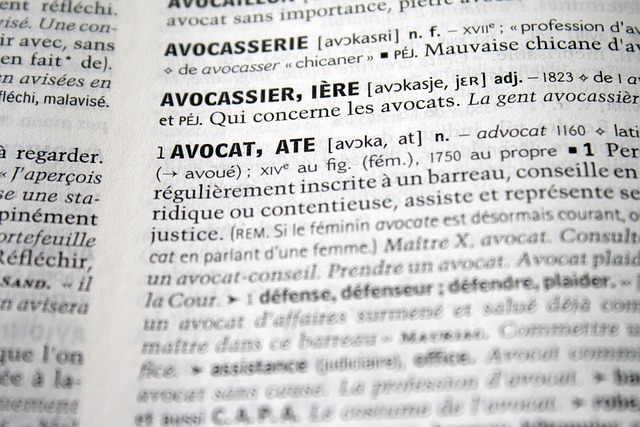Public corruption, involving bribery, embezzlement, and policy manipulation, carries severe legal penalties. Victims can collectively sue through class action lawsuits for Compensation From Class Action Lawsuits, holding accountable government officials and deterring future misconduct. These lawsuits not only provide restitution but also drive policy changes, increased transparency, and ethical governance. Successive cases expose systemic vulnerabilities, leading to preventative reforms like open-data policies, stricter ethics guidelines, specialized anti-corruption courts, and enhanced whistle-blower protections. This comprehensive approach underscores a commitment to integrity and accountability in public life.
Public corruption charges are a growing concern, eroding public trust and hindering societal progress. This article delves into the multifaceted issue, exploring definitions, legal frameworks, and the impact of class action lawsuits in holding corrupt officials accountable. We discuss strategies for victim compensation, emphasizing the role of funds from settlement agreements. Furthermore, we analyze preventative measures and reforms that can be implemented following successful corruption cases, focusing on how compensation from class action lawsuits can empower communities and deter future misconduct.
- Understanding Public Corruption Charges: Definitions and Legal Framework
- The Role of Class Action Lawsuits in Holding Corrupt Officials Accountable
- Compensating Victims: Distributing Funds from Settlement Agreements
- Preventative Measures and Reforms Following Successful Corruption Cases
Understanding Public Corruption Charges: Definitions and Legal Framework

Public corruption charges encompass a range of illegal activities where individuals in positions of power abuse their authority for personal gain. This includes soliciting or accepting bribes, embezzling public funds, and using influence to manipulate contracts or policies. The legal framework surrounding these charges varies by jurisdiction but generally involves specific statutes and regulations designed to deter and penalize corrupt behavior.
In many cases, individuals accused of public corruption face severe consequences, including substantial fines, imprisonment, and damage to their reputation. One significant aspect often tied to these cases is the potential for compensation from class action lawsuits. Victims of corruption can collectively sue to recover losses incurred due to unethical practices, providing a mechanism for holding accountable those involved in white-collar and economic crimes. This process, however, requires a robust general criminal defense strategy to navigate complex legal proceedings, especially when dealing with sensitive financial transactions and intricate regulatory environments.
The Role of Class Action Lawsuits in Holding Corrupt Officials Accountable

Class action lawsuits have emerged as a powerful tool to combat public corruption and ensure accountability among government officials. When individuals within a community or affected by a corrupt practice come together, they can file a collective lawsuit against the responsible parties. This strategy not only amplifies their individual voices but also carries significant legal weight. By pooling resources and sharing legal representation, plaintiffs can effectively challenge the misconduct of corrupt officials.
The compensation from successful class action lawsuits plays a pivotal role in deterring future corruption. Significant monetary damages can serve as a deterrent, sending a clear message to public servants that abuse of power will not be tolerated. Moreover, these cases often lead to important policy changes and increased transparency, ensuring that similar instances of corruption are prevented in the respective business or governmental sectors. This collective action is particularly effective in high-stakes cases where the stakes for ethical governance are the highest.
Compensating Victims: Distributing Funds from Settlement Agreements

In the aftermath of public corruption charges, one key aspect of justice is ensuring victims are compensated for their losses. Settlement agreements reached through class action lawsuits offer a mechanism to distribute funds to those harmed by corrupt practices. This process involves meticulous planning and execution throughout all stages of the investigative and enforcement process. By carefully managing these agreements, legal professionals can ensure that corporate and individual clients alike receive fair restitution.
An unprecedented track record of successful settlements highlights the effectiveness of these strategies. Through such initiatives, not only are individuals made whole again, but it serves as a powerful deterrent against future corruption. This comprehensive approach to compensation from class action lawsuits underscores the commitment to upholding integrity and accountability in public life.
Preventative Measures and Reforms Following Successful Corruption Cases

Following successful corruption cases, preventative measures and reforms are crucial to bolstering integrity within public institutions. High-stakes cases often serve as a wake-up call, revealing systemic vulnerabilities that require comprehensive solutions. One effective strategy is enhancing transparency through robust open-data policies and regular audits, making it easier for citizens and watchdogs to monitor activities. Additionally, strengthening ethical guidelines and implementing strict conflict-of-interest regulations can deter potential wrongdoers.
Reforms also extend to legal frameworks, where the establishment of specialized anti-corruption courts and the enhancement of whistle-blower protections incentivize reporting without fear of retaliation. Moreover, achieving extraordinary results in high-profile cases can lead to substantial compensation from class action lawsuits, not only providing restitution for victims but also sending a powerful message about the consequences of public corruption. This multifaceted approach ensures that while addressing past misconduct, future incidents are significantly reduced, fostering a culture of integrity and accountability.
Public corruption charges are a complex issue, but through comprehensive legal frameworks and innovative strategies like class action lawsuits, victims can find justice and compensation. By holding corrupt officials accountable, these measures not only ensure deterrence but also facilitate the distribution of funds through settlement agreements to compensate those harmed. Preventative reforms further strengthen the system, ensuring that corruption remains a distant memory in our pursuit of a more transparent and equitable society, with compensation from class action lawsuits playing a pivotal role.






